Guess who has the highest car crash mortality rate in the world? That’s right. The country I’ve been driving in; Namibia.
After a long day on a DIY safari, we left Etosha National Park in northern Namibia and headed towards our campsite near the Angola border. We had an hour drive, so we entertained ourselves by talking about where we were going and the animals we’d seen that day. In Africa, many towns have no streetlights and the only illumination comes from motorists heading the opposite direction. Suddenly, without warning , a donkey darted in front of the car. There was no time to brake or react. He was hell bent on a suicide mission. I swerved to the right to avoid him, but it was too late for that. I heard a crunch of metal hitting flesh and the car careened over to the other side of the road. Fortunately we had on our seat belts on and the animal didn’t crash through the windshield, which is what often happens when a large animal is struck by a car.
Before I could even assess the situation, the car was surrounded by African villagers, many of them drunk from the local moonshine. I got out of the vehicle and soon found myself followed by a wall of adults, kids and curious onlookers. I flipped on my cell phone flashlight to see how bad things might be. They were bad. The passenger door would not open, the left tire was flat and the hood and side of the car were destroyed. The car was not driveable. And what happened to the donkey?
My fears were soon confirmed as I walked back to where the car had struck the animal. He was dead; very dead. He’d been thrown to the side of the truck and was lying there in the darkness. Obviously it wasn’t funny, but several people in the crowd were laughing about it. They followed me back to the vehicle, their numbers constantly growing. I was a little nervous about our belongings so we started moving our stuff from the cab to the locked back section. It was pitch black, the only lighting coming from the bar and the oncoming vehicles’ headlights. None of the natives spoke English. A couple people were talking to me in their native dialect. One woman was shouting at me and getting everyone riled up. In these small African villages, the locals rarely see white people. We must have appeared to be like extraterrestrials in a truck loaded with food, clothes, cameras and other incomprehensible riches. In a poor village with drunk Africans and very little light, things can quickly turn bad. What do you do in an African town at night with drunk natives, a dead donkey and a totaled vehicle? It’s not one of those things that you have a plan for…..
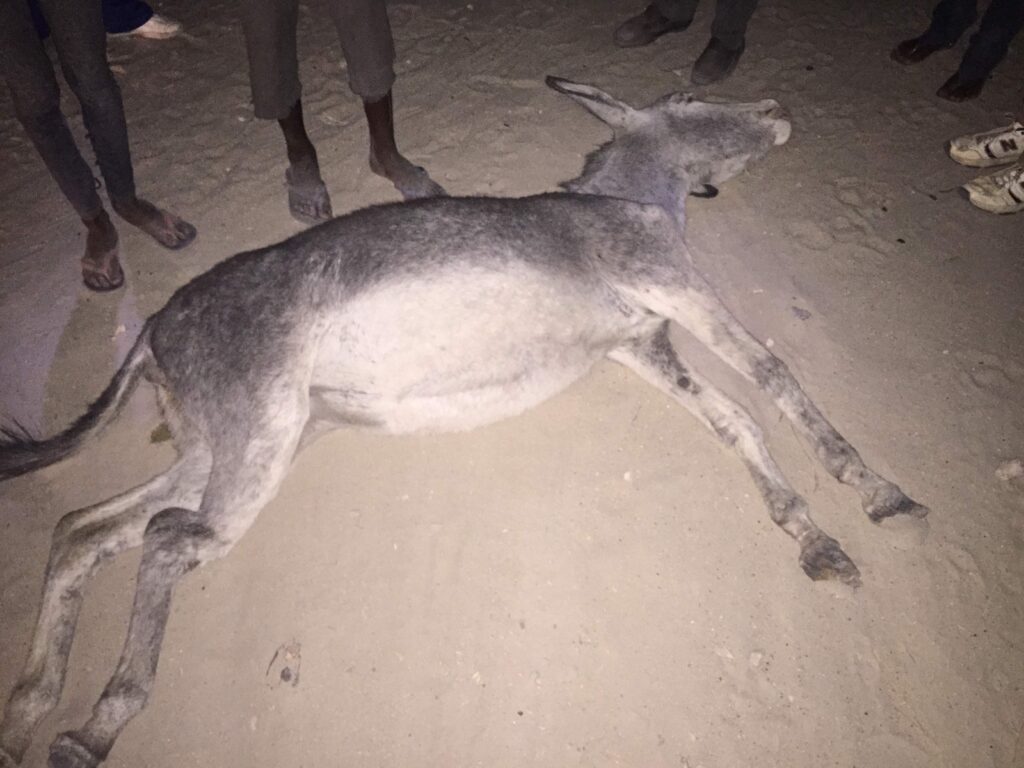
Fortunately the police arrived as the situation started to escalate. They calmly explained that sometimes the drunk villagers get a little crazy and light people’s cars on fire.
We had thought about pitching our tent mounted on the top of the truck. It seemed to be a solution if we got stuck on the side of the road. The police warned us that there was an extremely good chance that in doing so, we’d be robbed. If we just left our truck in the village, they explained there would be an almost 100% chance for it to be vandalized and stripped. Not good news. The police broke the mob up and started shouting at them in the local dialect to go back to where they had come from. They dispersed begrudgingly.
We called the number provided by the rental company and were assured by a man with a thick Indian accent that the car would be towed. We just needed to pay for it and we would be reimbursed later.
But what about the dead donkey? Wouldn’t someone be upset and expect us to pay for a new one? The police explained animal accidents happen regularly here and that the villagers have been warned, but refuse to do anything about their roaming animals. No sooner had the words left the police woman’s lips, another car hit a donkey on the same strip of road. However, this donkey somehow survived and the dented car continued on its journey. The police informed us that as soon as they left the scene, the locals would come with machetes and knives to carve off pieces of the animal for the meat. They were only kept at bay by police lights and fear of jail.
A wrecker finally arrived and loaded the truck to take us to the next town about half an hour north. As we were driving, the driver pointed out a dead cow that had just been hit and told us that many accidents with animals occur along this road and we were lucky to be alive.
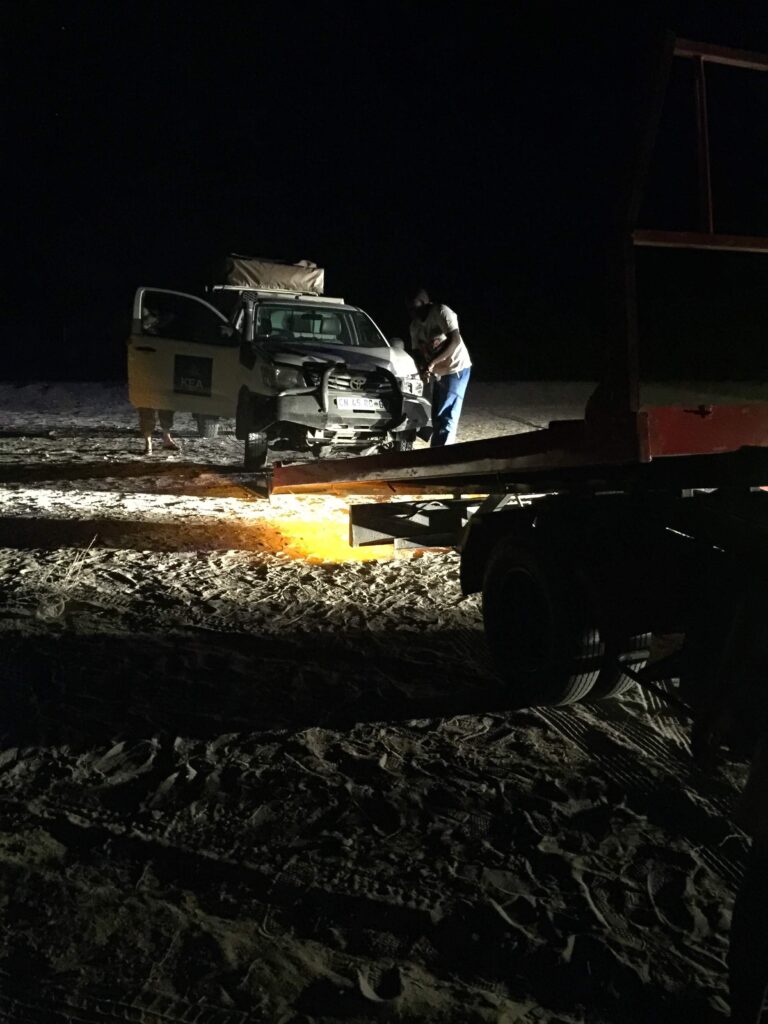
As impossible as it might seem, our rental agency sent another truck from its headquarters in South Africa and hauled off the damaged one. During our wait, we had an extra day of downtime and were able to talk our way across the Angola border.
But that’s another story.


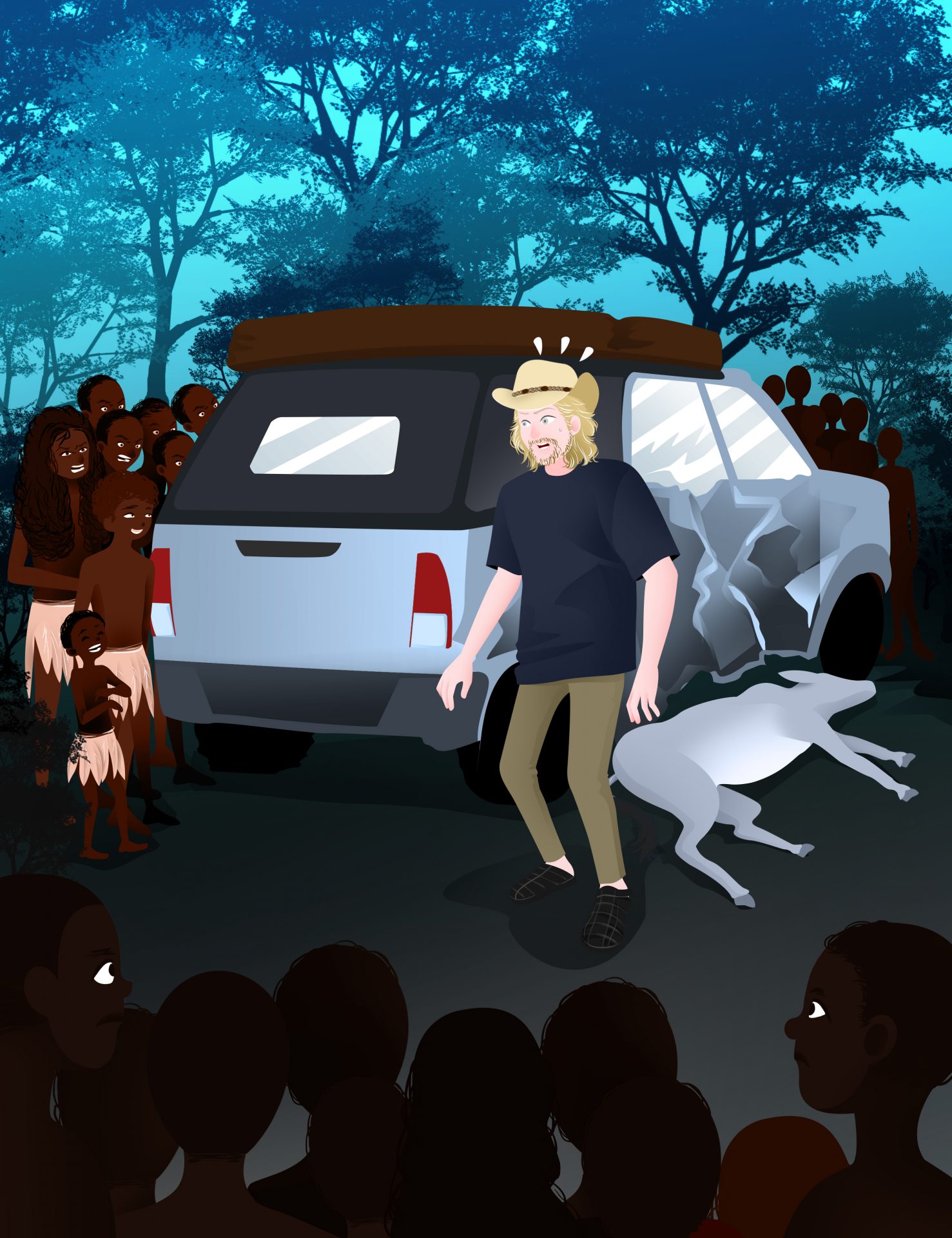
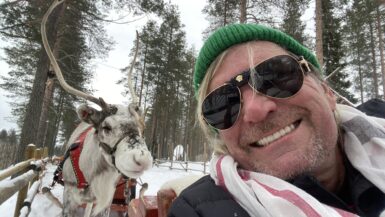
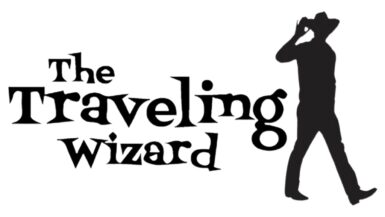
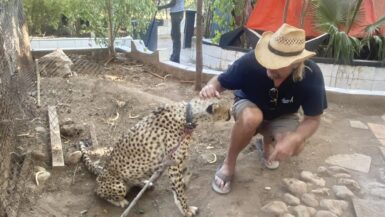
Leave a reply
You must be logged in to post a comment.